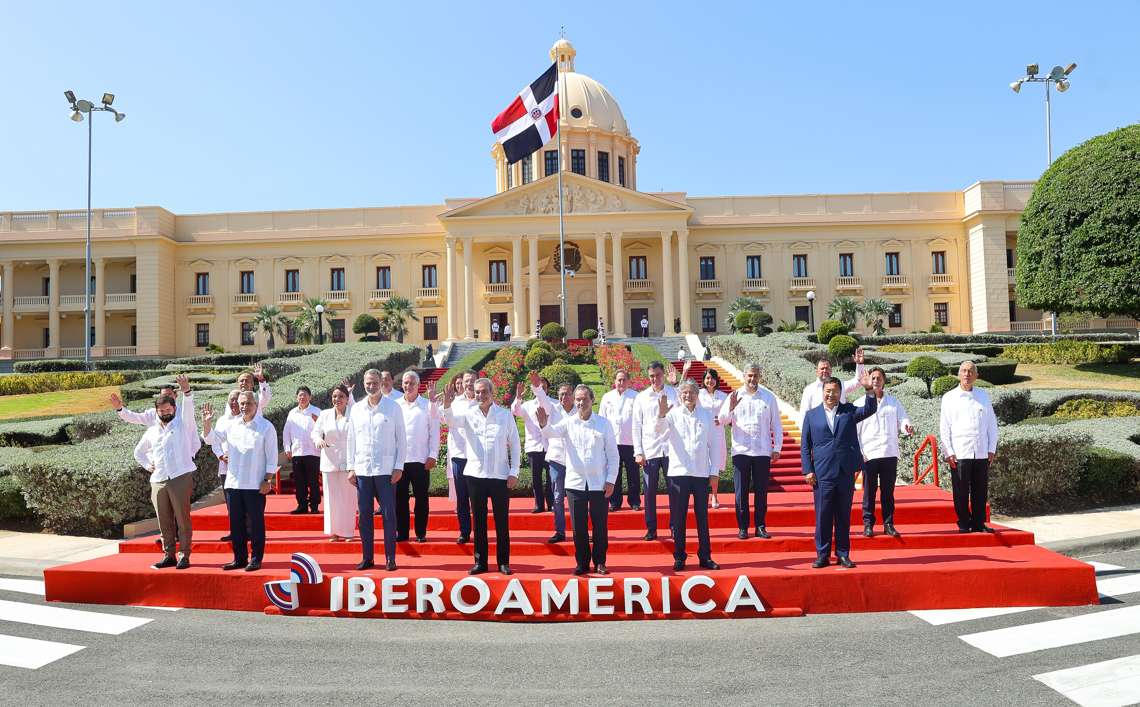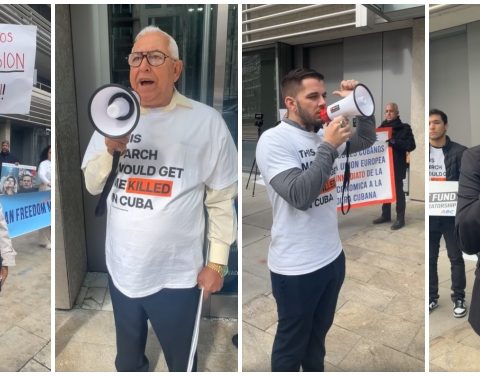The XXVIII Ibero-American Summit closed this Saturday in the Dominican Republic with a consensus on its main points and with a rejection of “the application of unilateral coercive measures” in its final declaration.
The Ibero-American heads of state and government agreed on their positions on the four major objectives of the summit: environmental charter, digital, food security and financial architecture, the latter the most discussed until the last moment, he refers an office from the agency EFE.
In addition, they reached agreements on other issues such as the III Four-Year Cooperation Action Plan 2023-2027, the decision to promote gender equality and the commitment to promoting democracy, the report added.
In the final press conference, the host of the summit, Dominican President Luis Abinader, specified that they also reached commitments on international law including the principle of sovereignty, non-intervention in affairs between States and their legal equality.
Press release ?
The XXVIII Ibero-American Summit in the Dominican Republic ends with an agenda focused on people and agreements on digital rights, the environment and food security.
?https://t.co/Pp9qtnPPGF pic.twitter.com/3bADDofiQJ
— Ministry of Foreign Relations Dominican R. (@MIREXRD) March 26, 2023
They also agreed on the importance of a new migration regulation that respects the human rights of migrants, the coordination of the fight against transnational crime and the need for a fairer system, the Spanish media specified.
Similarly, the twenty-two participating countries expressed their “deep concern” about the situation in Haiti and expressed their total solidarity with the Caribbean country, while speaking out on the energy transition, marine sustainability and the situation of the Malvinas.
“Unilateral coercive measures” and the embargo on Cuba
In the final declaration of the summit, the attending leaders rejected “the application of unilateral coercive measures that violate international law and the Charter of the United Nations, which hinder the ability of States to address their development needs and priorities.” ”.
In addition, they reaffirmed their commitment “to democracy, the rule of law, strict respect for the Charter of the United Nations and international law, including the principles of sovereignty, non-intervention in internal affairs of States and legal equality of States.” , the right of each people to freely choose and build, in peace, stability and justice, its political, economic and social system and its institutions, as well as access to information, justice and respect for due process”.
Meanwhile, in a special statement, the highest representatives of the Ibero-American countries also rejected the United States embargo on Cuba and the application of the Helms-Burton Act, and called on Washington “to comply with the 30 resolutions of the General Assembly of the UN that ask to stop this policy”, aim the official site cubadebate.
Similarly, they spoke out against the presence of Cuba on the list of countries that in the opinion of the United States are sponsors of terrorism and requested its exclusion from that list, the information added.
In his speech at the summit, President Miguel Díaz-Canel had reiterated the island’s denunciation of the “escalation” of the United States embargo and considered an “insult to the truth and an offense” the inclusion of Cuba in the “spurious ” list of countries sponsoring terrorism.
XXVIII Ibero-American Summit approves Special Declaration that rejects illegal certifications from terrorist countries.
Strongly reiterates the exclusion of #Cuba ?? from unilateral list of countries sponsoring terrorism.#CubaForPeace #BetterNoBlock pic.twitter.com/SdjzOs5NRb
— Cuban Foreign Ministry (@CubaMINREX) March 25, 2023
Immigration, Haiti and the EU-Latin America relationship
Immigration, support for Haiti and the relaunch of relations between Latin America and the European Union (EU) were among the important topics of the summit, according to the Secretary General of Ibero-America, Andrés Allamand, quoted by EFE.
In the final press conference, Allamand pointed out immigration as an issue that affects all regions of the world, and in particular the Ibero-American community, and announced that in the search for solutions from the summit, the idea of organizing a conference on the subject in the third quarter of this year, although the place and date are still pending.
Regarding the situation in Haiti, Allamand stressed that “it is becoming an important issue for the Ibero-American community”, and corroborated Abinader’s idea that without pacification there is no solution for the Caribbean country.
“The previous step for those ideas such as the creation of institutions and the normalization of the country is its pacification,” he reiterated, according to the Spanish media.
Regarding EU-Latin America relations, he highlighted the speech at the summit by the head of European diplomacy, the Spanish Josep Borrell, and hoped that the unfinished agreements would be closed and the negotiations would not drag on forever, as well as that there would be strong support for the investment in both directions.
Ready the documents of the Ibero-American Summit in Santo Domingo
Financial architecture and next summit
The main stumbling block at this summit was reaching a commitment to create a new financial architecture, to help recover from the consequences of the pandemic and face the difficult international situation, review EFE.
It was not until lunch that it was agreed to give visibility to the question of the financial architecture to mitigate the external debt. However, Abinader wanted to specify that it was more of a matter of form than substance and now it will be the ministers of Treasury and Finance who will work to carry out this project, adds the office.
As for the next summit, it will take place in Quito, Ecuador, on November 29, 2024, under the motto “Innovation, inclusion and sustainability in Ibero-American”.
“Ecuador accepts the challenge,” said President Guillermo Lasso, who referred to three other major issues that will be discussed at the regional forum: promotion of circular economies, food security and ecological transition.
“The challenges require the joint action of all the members of the Ibero-American community,” Lasso said and invited to “look with hope” at the unity of the region.
EFE / OnCuba

















